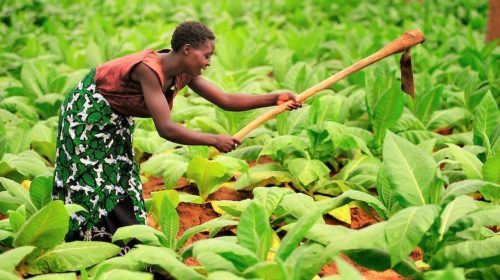The Economic and Social Research Consortium (CRES) is holding from 22 to 23 February in Saly, a national capacity building and advocacy workshop for the effective implementation of the directives on tobacco taxation in West Africa.
The main objective of this educational meeting is to create a synergy of action to support the implementation of the directives of sub-regional organisations. According to CRES, the Economic Community of West African States (ECOWAS) adopted a new directive in December 2017 to tighten tobacco taxation policy.
Despite this effort, smoking prevalence is “steadily increasing” on the continent. Similarly, preventing its increase, especially among young people, remains a major concern of developing countries, the majority of which have ratified the World Health Organisation (WHO) Framework Convention on Tobacco Control (FCTC), the consortium added.
Citing the FCTC, the UN agency’s Framework Convention on Tobacco Control, it added that taxation of tobacco products is “the best instrument to reduce tobacco consumption, especially among vulnerable people.” This is the logic behind the ECOWAS directive, which is “based on a set of theoretical arguments and empirical evidence” and which “sets a minimum ad valorem tax rate of 50 percent and a specific tax of two US cents per rod.”
However, it was noted that this text “has been slow to be applied” even though Article 14 provides for the creation of a regional committee and national monitoring committees. This is why CRES has initiated this workshop to strengthen advocacy with state actors, representatives of the Economic and Monetary Union of West African States (UEMOA), ECOWAS and West African civil society.
For the implementation of this project, CRES will work, beyond the structures in charge of regional integration, with the tax, customs, health and trade administration and civil society, among others.
“The project aims to provide evidence that can strengthen advocacy with national and regional decision-makers. This joint support with all stakeholders will help consolidate the benefits of implementing tobacco taxation policies including, the ECOWAS directive on the taxation of tobacco products, adopted in December 2017 as well as that of UEMOA,” it noted.
“The CRES wishes to respond to the need for capacity building of member states and the ECOWAS Commission by providing technical assistance for the establishment of a regional committee and national committees. These committees will be responsible for monitoring the application of the new directive and will provide support to administrations in the application of the directive,” the organisation added.
Moreover, “progressive changes in tax policies are already being undertaken by some governments. The ultimate objective is to put in place an effective taxation system so that excise taxes represent at least 75 percent of the retail price of cigarette packs,” the CRES noted, recalling that the consumption of tobacco products and its impact on the occurrence of related diseases are major public health challenges.
ODL/te/lb/abj/APA


